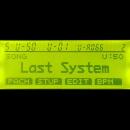Malcom Gladwell popularizó en su libro Outliers (Fuera de Serie) el concepto de la Regla de las 10.000 horas... para alcanzar la maestría en cualquier cosa, ya sea tocar la guitarra, el piano, cantar, componer... jugar al tenis... se necesitan al menos 10.000 horas de práctica. Y se suele poner de ejemplo a los Beatles que se tiraron tocando 4 horas diaras en los clubes de Hamburgo varios años antes de ser una banda extremadamente competente y petarlo universalmente con sus canciones.
Hay algunos autores que han cuestionado la Regla de las 10.000 horas, desde Seth Godin que te dice que es propia de sectores y disciplinas maduras, pero que en otras es posible que con la mitad seas ya el mejor y ahora Tim Ferris el de La Semana Laboral de 4 horas (que tenía alguna idea interesante pero pecaba mucho de "receta para hacerse rico escribiendo libros sobre cómo hacerse rico") que propone deconstruir el proceso y aplicar Pareto.
y ahora Tim Ferris el de La Semana Laboral de 4 horas (que tenía alguna idea interesante pero pecaba mucho de "receta para hacerse rico escribiendo libros sobre cómo hacerse rico") que propone deconstruir el proceso y aplicar Pareto.
https://medium.com/swlh/how-to-by-pass-the-10-000-hours-route-to-mastery-12d9d6d9e1e4
El resumen del artículo es este:
Lo llama DS3 (tiene gancho, la verdad) Deconstruye , Selecciona, Secuencia y Apuesta.
- Deconstruir es extraer los aspectos fundamentales de ese dominio de una disciplina.
- Seleccionar es optar por el 20% de esos aspectos que te darán el 80% del resultado.
- Replantéate la secuencia recomendada para dominar ese 20% de aspectos. ¿Cómo puedes optimizar el tiempo y esfuerzo a emplear?.
- Apuesta algo, juégate algo, cuanto más haya en juego más incentivo para lograr el éxito.
¿Se podría aplicar algo así a aprender "guitarra para metal", "bajo funk", "cocktail piano", "componer hits para el billboard"?... ¿existen los atajos?.
Hay algunos autores que han cuestionado la Regla de las 10.000 horas, desde Seth Godin que te dice que es propia de sectores y disciplinas maduras, pero que en otras es posible que con la mitad seas ya el mejor
https://medium.com/swlh/how-to-by-pass-the-10-000-hours-route-to-mastery-12d9d6d9e1e4
El resumen del artículo es este:
Alguien escribió:In Summary
Here is the vital 20%, that’ll help you get at least 80% of the knowledge in this post —
- The “10,000 hours” route to success is unrealistic, especially in this day and age.
- Timothy Ferriss presents an alternative route to mastery that focuses on optimal minimalism (doing less to get more results.)
- The approach can be remembered as DS3 (Deconstruct, Select, Sequence and Stake).
- Deconstruct your approach to mastery into it’s bare bones (fundamental aspects)
- Select the 20% of the aspects that’ll get you at least 80% of the results.
- Question the recommended Sequence of the approach, a different Sequence may be more beneficial.
- Have a Stake in your wager to mastery. That Stake will give you extra incentive to succeed and foster creative ways to exceed targets.
Lo llama DS3 (tiene gancho, la verdad) Deconstruye , Selecciona, Secuencia y Apuesta.
- Deconstruir es extraer los aspectos fundamentales de ese dominio de una disciplina.
- Seleccionar es optar por el 20% de esos aspectos que te darán el 80% del resultado.
- Replantéate la secuencia recomendada para dominar ese 20% de aspectos. ¿Cómo puedes optimizar el tiempo y esfuerzo a emplear?.
- Apuesta algo, juégate algo, cuanto más haya en juego más incentivo para lograr el éxito.
¿Se podría aplicar algo así a aprender "guitarra para metal", "bajo funk", "cocktail piano", "componer hits para el billboard"?... ¿existen los atajos?.










 ](*,)](https://statics.soniccdn.com/images/smilies/eusa_wall.gif)




